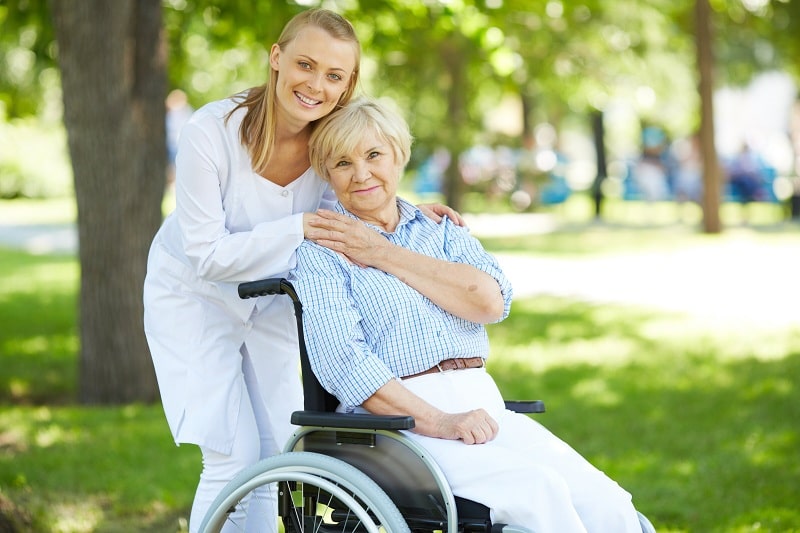Elderly care plays a crucial role in ensuring that older adults can maintain their health, well-being, and quality of life. It involves providing physical assistance, emotional support, and social engagement to address their unique needs and concerns.
Elderly care helps seniors maintain their independence, promotes their safety and comfort, and helps them live with dignity and respect. It also provides peace of mind to their families and caregivers, knowing that their loved ones are receiving the care they deserve.
Moreover, elderly care fosters meaningful connections, reduces isolation and loneliness, and enhances the overall physical and mental health of older adults. It recognizes and honours the contributions and wisdom of older people, promoting a society that values and respects its ageing population.
5 Ways To Take Care of Elders
Caring for your elderly loved one is not only your moral duty; it is a way to show them how much you care. It is essential to ensure that their needs are met, including medical care.
Taking care of them should be one of your top priorities. Luckily, many resources can help you care for your aging loved one.

Don’t Miss: How to Spend Your Old Age Years Happier and Healthier
#1. Coordination
Coordination of elderly care Missouri is critical to providing the best care for aging individuals. Without proper coordination, maintenance can be fragmented, resulting in medication errors, a lack of patient education, and limited access to services and resources.
A key component of care coordination is communication. Patients with cognitive or language impairments and those who lack adequate health literacy may have difficulty communicating their needs and receiving care.
Care coordination is a team effort. When older adults have complex health conditions, many healthcare providers are needed to provide high-quality, affordable care. The team needs to coordinate care services from different providers, such as physical therapists and pharmacists, who can assist patients with their medications.
In addition, a social worker can address the psychosocial needs of an older adult, and a physician can handle medical diagnosis and treatment.
Read: Assisted Living Communities: An Alternative to Nursing Homes
#2. Taking Care of Social And Personal Needs
The elderly population is growing, and many have unmet care needs. This is putting pressure on the formal and informal care systems in the United Kingdom. Addressing this issue is an urgent public health priority. Understanding the needs of the elderly population is essential to developing practical solutions.
Social and personal needs are essential for older adults. However, these needs may be complex and vary by individual and culture. For example, some cultures are more supportive of their elders than others.
Moreover, not every older adult feels the need to maintain a vast social network. This is because social and personal needs are rooted in the individual’s values, culture, and personality.
Read: Tips to Find the Best Senior Living Facility
#3. Unpaid Carers
Caring for the elderly is a difficult job, and many unpaid carers struggle to find the time to do it. As a result, they are often exhausted and experiencing health problems, and their relationships may change beyond their expectations.
Unpaid carers provide almost two-thirds of all care for older people. Their efforts have a considerable impact on older adults’ physical and mental health. This care can also have significant financial and social consequences, so support for unpaid carers is critical.
#4. Specialized Care
Caregiving for the elderly is a challenging process. Many older adults have unmet needs in self-care, domestic life, and mobility. In addition to requiring professional assistance, they often require various specialized services. Specialists work as part of a team to provide the highest quality of care.
Read: How to Choose a Board and Care Facility
#5. Safe Environment
Older adults face multiple threats related to their interior and exterior environments. These factors cause functional limitations that can place the more senior person at risk of injury and other problems. Therefore, creating a safe environment for elderly care in the home is essential to prevent these complications.
First, be sure to have a carbon monoxide detector near each bedroom. This will help reduce the risk of accidental poisoning. Secondly, ensure that the home is not overheated and that the stove is turned off when not in use. Also, keep medicines organized and within reach, and ensure they are taken as prescribed.
Taking care of elders is not just a responsibility but a moral obligation and an act of compassion. Elderly individuals have spent a lifetime contributing to society, raising families, and building communities.
Read: Tips for Choosing a Quality Assisted Living Facility for Seniors
As they age, they may face various physical, cognitive, and emotional challenges impacting their daily lives. By providing care and support to older people, we can honour their wisdom, experience, and sacrifices.
Caring for elders involves meeting their physical, emotional, and social needs and promoting their well-being, comfort, and dignity. It allows them to age with grace and respect, maintain their independence, and enjoy a higher quality of life.
Taking care of elders is beneficial to their health and happiness and promotes empathy, kindness, and intergenerational connections.
It sets an example for future generations and creates a compassionate and inclusive society where seniors are valued and cherished.
More Great Posts:
- What is CoolSculpting and How Does it Work?
- Why is Medical Supply Delivery Convenient?
- The Benefits of Home Nursing









